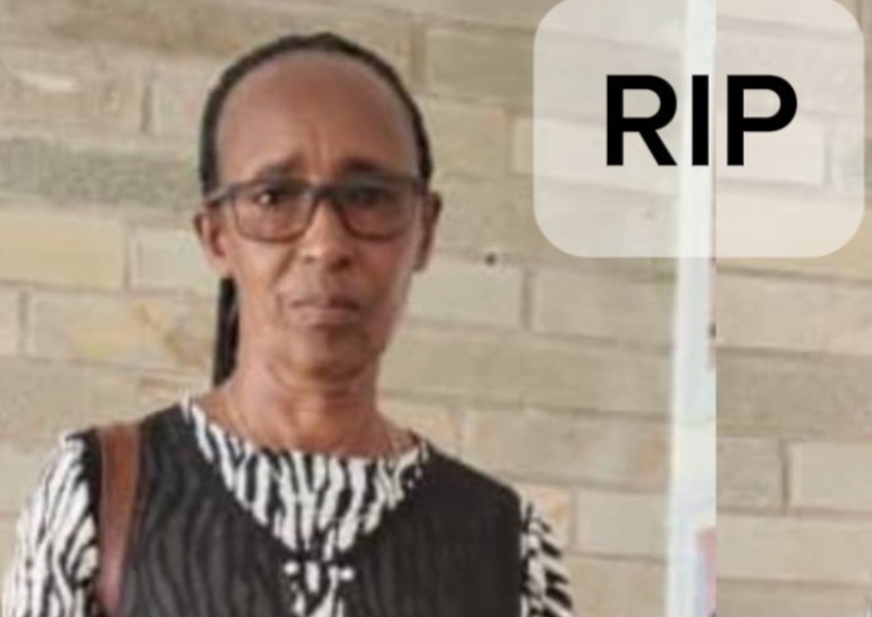
By Michel Nkurunziza – Emmanuel Nkangura, The New Times
The missing head of a Genocide survivor who was murdered on November 14 in Ngoma District was found in a pit latrine where it had been thrown, a representative of IBUKA, the umbrella organization for Genocide survivors’ associations in Ngoma District, told The New Times on Monday November 18.
A survivor of 1994 Genocide against the Tutsi, Pauline Nduwamungu, 66, was murdered in Akabungo village, Rubago cell, Rukumberi Sector.
Nduwamungu who was beheaded between 13:00pm and 14:00 pm, lived with a school child, Omar Biseruka, the IBUKA representative in Ngoma District, explained.
Her headless body was found in a compost pit at her home.
“Investigators are helping us because they have made arrests of some suspects as part of investigation which is ongoing. Her head was found yesterday [Sunday] night in her toilet in which the killers had thrown it,” Biseruka said.
The New Times’ questions about the arrests and ongoing investigation were not answered by Rwanda Investigation Bureau (RIB).
“We are waiting for findings from Rwanda Investigation Bureau. Meanwhile, Genocide survivors should remain calm as leaders, security organs and investigators are doing their job to help us with this case. We urge residents and neighbors to share information that could lead to the arrest of to the criminals and about any other threats and attacks against Genocide survivors,” Biseruka noted.
He added that Nduwamungu had not been buried by Monday as investigation was still being carried out.
The date for her burial will be announced after the RIB investigation, he said.
The Minister of National Unity and Civic Engagement, Jean Damascene Bizimana, while addressing the 17th forum of the Unity Club Intwararumuri on Saturday at Kigali Convention Centre, called for stronger efforts to end attacks on survivors of the 1994 Genocide against the Tutsi.
“Over the past three months we have reported attacks and threats targeting Genocide survivors. Some attacks are carried out by Genocide convicts who were released after completing their sentences while others are committed by people from families of Genocide convicts,” Bizimana said, citing the case of Pauline Nduwamungu.
He said three such attacks were recorded in August in Nyaruguru, Karongi and Ruhango districts.
Trend of genocide ideology cases
The Minister said that although the number of genocide ideology and related crimes have decreased by 14 per cent of the past four years, “there are still genocide ideology and divisionism cases which we have to eradicate.”
In April this year, figures from RIB from 2019 to 2023 indicated a notable decrease in genocide ideology cases by 13 percent, Genocide denial cases by 89 percent, and cases of trivializing or minimizing the Genocide against the Tutsi by 75 percent.
In 2019, there were 128 genocide ideology cases, which decreased to 69 cases in 2020, followed by an increase to 88 cases in 2021. A drop to 56 genocide ideology cases was reported in 2022, before an increase to 87 cases in 2023.
Up to 24 cases of Genocide denial were reported in 2019, before decreasing to 11 in 2020. 12 cases were reported in 2021, 14 cases reported in 2022, and 11 in 2023.
Cases of trivialization or minimizing of the Genocide against the Tutsi followed a similar pattern, with 51 cases reported in 2019, before dropping to 26 cases in 2020. 26 cases were reported in 2021, decreasing to 18 cases in 2022, and rising to 25 cases in 2023.
However, the RIB figures indicated an increase in crimes related to concealing, destroying, eliminating, or degrading evidence or information related to the Genocide. These crimes had risen by 120 percent. These cases rose from 44 in 2019 to 97 in 2023.
The above genocide-related cases involved 3,563 suspects, RIB said.
